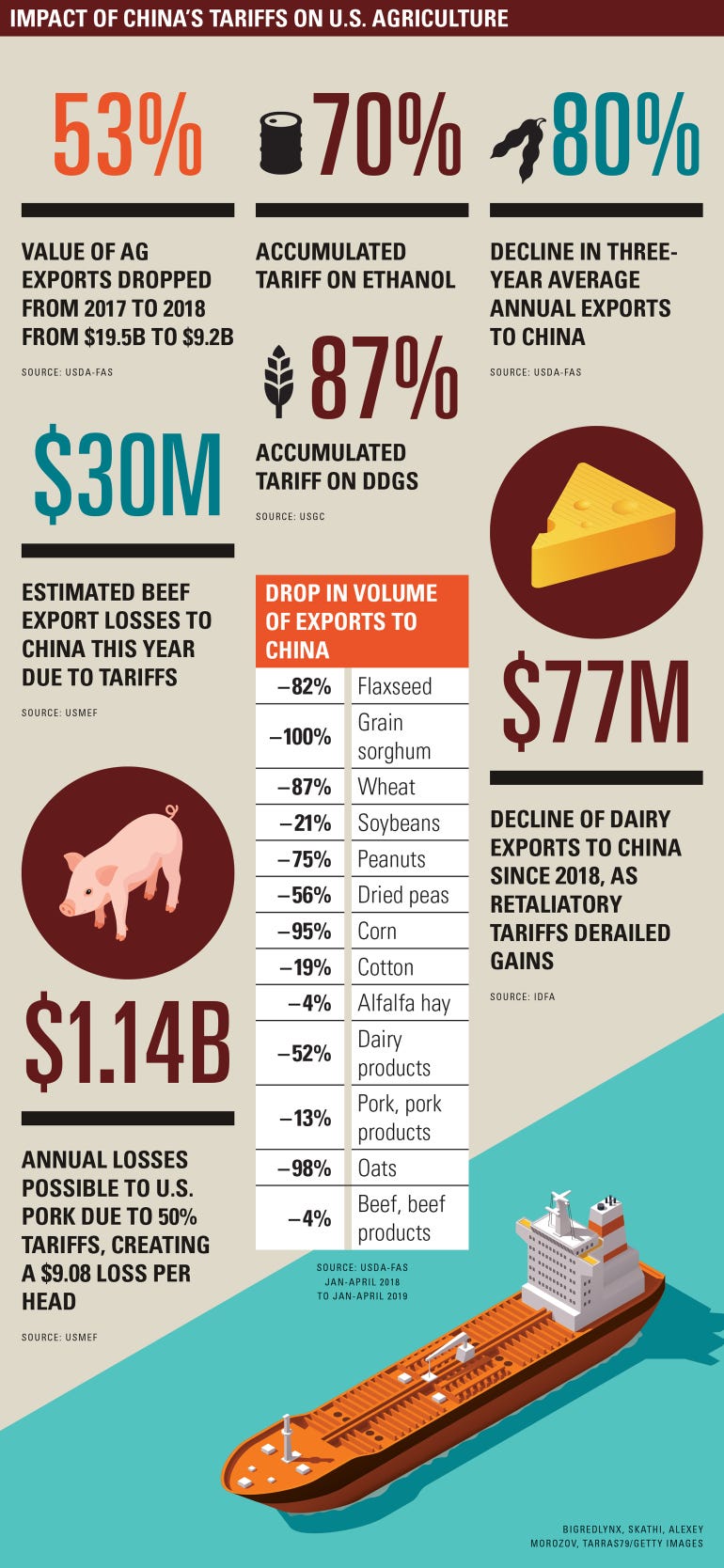
U.S. agricultural exports to China represented 5% of U.S. cash receipts in 2017. China represents one of our best opportunities for major export growth in the near- and long-term future. But the ramifications of the trade dispute continue to take their toll on U.S. farmers.
At the end of June, President Donald Trump and China’s President Xi Jinping called a truce on increasing tariffs on the remainder of Chinese exports, but the previous instituted tariffs will continue. Trump again promised China would begin buying “large amounts” of U.S. ag products as part of the latest discussions.
It does not appear a solution is imminent. Chad Hart, Iowa State University ag economist, says negotiators are a “long, long way to having a formal agreement,” and anything with China will be nothing like the North American trade agreement or Korea agreement.
“To me, the best thing to come would be an agreement to reverse tariffs currently being erected and build towards some kind of trade agreement somewhere down the line,” Hart says. “Even when working with countries we get along with famously [Canada and Mexico], it took 14 years. China is a vastly different country and mindset in how they approach things. You’re not going to strike a deal much quicker with a country with that different starting point.
“Tariffs can be reversed on a course of a tweet. Trade agreements take years, if not decades, to build,” Hart explains.

About the Author(s)
You May Also Like






